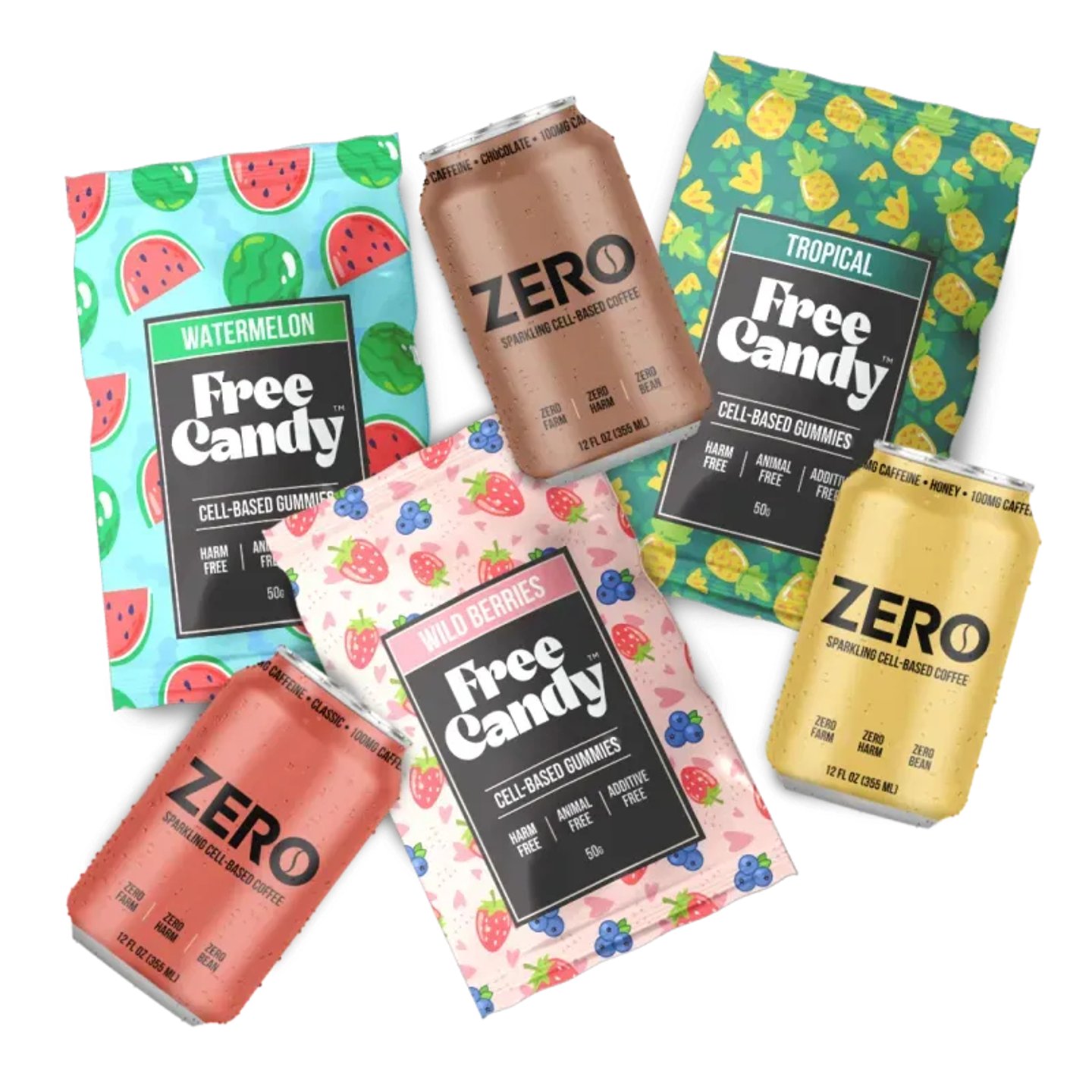The Innovators: Cult Food Science CEO on the future of cellular-based food
Cult Food Science is a publicly traded company committed to the investment, development and commercialization of cellular agriculture technologies and products. It is currently working with 19 companies across a range of food and drink categories.
In a recent interview with Canadian Grocer, CEO Lejjy Gaffour shared his thoughts on where the sector is headed, and just how long it could take for lab-created food to go mainstream. Hint: It could be sooner than you think.
This interview has been edited for length and clarity.
Tell me about the launch of Cult Food Science. What was the impetus for its creation?
We're focused on creating new companies and products in the cell-based space [with a focus on] making it part of everyday life.
When Cult Food Science started, it was focused on being the first publicly traded platform in North America in this space. There was no easy way for regular people to be able to invest or access these types of products and technologies at an early stage, just because they're newer.
The goal is to be able to provide that access. I still get emails every other month from someone saying that this is exactly what they want to be able to support, and put their dollars where they want to see change in the future because they're on the same wavelength. We have a portfolio of 19 companies globally, and we work with them quite heavily to create and introduce these new products.
There’s a tendency to view the technologies we're talking about through an environmental lens. But are there other factors that can make this a game-changing technology?
There are a few factors. Food security is one of them, in the case of particular auxiliary products or commodities that might be very heavily impacted by climate change. I'm 100% generalizing with this comment, but something like coffee, for example. It’s produced in particular climates where that may just become an issue as things change. These technologies will allow us to be able to continue to produce the goods that people want every day.
In addition to that, it’s also being able to create new and enhanced experiences as well – whether it's new types of food that were never before possible, [new] flavor profiles, and even things such as changing how long food can last. There are multiple aspects to these cell-based technologies.
[Read more: “Canada's food industry has an appetite for innovation”]
Are you developing and bringing products of your own to market, or are you primarily investing in companies that have already made some progress in the space and are looking for some sort of investment capital to jumpstart their initiative?
I would say it's a hybrid model, where we're both a venture studio and an investment company. Some of the companies that we have in our portfolio are very business-to-business focused – they spend all their time and energy on developing specific technology, and then we can actually work with them to make a consumer end product out of it.
If collagen is an individual ingredient, for example, they're focused on that hard part and that's where they have the problem solved, and then we'll work with them to get it into the hands of the consumers.
You’re said you’re currently working with 19 companies spanning categories like coffee, candy, pet foods, etc. Is the goal to eventually cover the spectrum of food products?
It’s getting into the different consumer-end products, whether that’s land-based meats, seafood or then other products such as chocolate, coffee, honey, collagen and others. Because there's so much ground to cover through these technologies.
[Read more: “Cult Food Science expands operations, plans cell-based product launches”]
Do you currently have any products available to purchase?
It depends where you live. In Canada, nothing at the moment. But we will have Cult Food Science-related products on the shelves in North America in the near-term. We will have our pet food items out in the very near-term, and then consumer products like candy and coffee will be next.
We use a staged release to be able to make sure we’re ticking all the boxes, doing it properly, and being able to iterate as we need and then expanding from there.
From where you're sitting, how well-developed is cellular-based food at this juncture? How well have you been able to replicate its traditional counterpart?
The absolutely honest answer is that it depends on what product you look at. In the case of something like a ground meat, even just generally, in the industry, the production right now is identical for the most part. You can end up with muscle cells and fat cells that are the cells, and combine that into a product.
One of our portfolio companies, Ohayo Valley [which describes itself as “a cultivated beef company developing the next generation of alternative beef products”], had a demo of its meat product, and no matter how you chop it up or slice it or inspect it, it is the exact same thing. As you start to get into things like steak, that becomes much more complex, where your texture in the bone, for example, is much further out.
But then when you get into the products again, like candy for example, collagens and gelatins are mixed into a formula and then it becomes identical to what is on the shelves today through an entirely different method. It is really about mirroring that and then being able to enhance on top of that. It does vary depending on the product, the complexity and even the cell type.
Are there some categories that are further ahead than others?
There is definitely a lot of focus on meats because that’s where a lot of the industry started. Land-based meats and specific types of fish such as salmon are very far along and it’s been expanding from there.
It’s when you get down to individual categories, like let’s say shrimp versus a particular type of salmon or tuna, you’ll start to see the variability. There’s been a huge focus on the meats and we’re starting to see a lot of pick-up in the other commodities like honey or chocolate. We’re starting to pick up other [food types] that people aren’t necessarily aware this technology applies.
[Read more: “Could Canadians get behind cell-based meat?”]
What do you think is a reasonable timeline to expect this type of cellular-based food to make real headway in the market?
It’s definitely a complex question. I think the big thing I'm seeing is that it will vary a lot depending on the region. There will be more availability to consumers within the next 24 months, from different companies.
The proliferation will just change over time, from store by store to area by area, and depending on the company. Some companies are using an iterate, test and do it again approach, while others want a big blast to get [product] out there as quickly as possible. We’ve seen both approaches.
Availability in restaurants [is also] a common strategy, and you'll see it increasing over the next few years, just to be able to expose it to consumers. It'll pretty much be the case where it will seem like it was suddenly when in reality it was five to 10 years of proliferation.
There’s no shortage of innovation happening in the food industry. From fresh retail concepts to avant-garde products, Canadian Grocer is putting the spotlight on the people and businesses moving the industry forward in our new series, The Innovators. Have a pitch? Send your submissions to digital editor Jillian Morgan.




